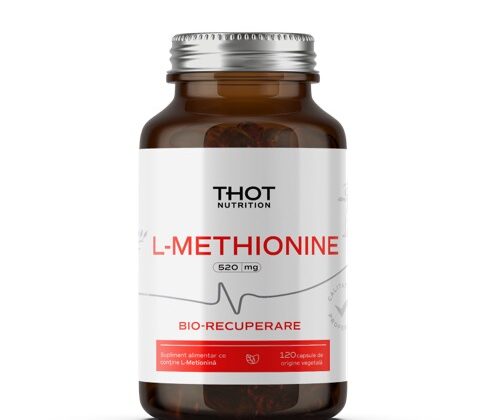Overview of the article:
- The benefits of eating a healthy high-fat diet are nothing more than the results of returning to the way our bodies have naturally been created to use their energy resources over time.
- A properly applied ketogenic diet can help to lose weight, optimize the nervous system, stabilize blood sugar levels, increase energy levels, reduce inflammation and protect the cardiovascular system, along with many other benefits.
- Among the many applications of the ketogenic diet are the medical ones, where encouraging results have been reported in diseases such as: diabetes, epilepsy, Alzheimer’s, cardiovascular diseases, etc.
I look around and everyone wants to lose weight, everyone wants to be healthy, everyone wants to live longer (if possible, without doing anything, but that’s another story). Regardless of the method that everyone chooses or the motivation behind it, it is a growing trend.
It is not surprising that more and more advanced solutions have been sought and are still being sought, which aim at obtaining real and sustainable results in the shortest possible time, with as little as possible energy consumption.
We have at our disposal an ocean of tools, created out of necessity. But which one do we choose? We all want quality, we want the best. But is it right? Behind every instrument in the ocean of instruments is another ocean of science, which, in order to understand, for the majority, one lifetime is not enough.
A very powerful and effective tool is the ketogenic diet itself, which, along with hydration, in terms of nutrition, is perhaps even the “basis” through which we feed our body, to which we can add all sorts of fireworks, supplements, cycles, etc. to potentiate its effects.
In the ketogenic diet, we use fats as the main source of energy, a mechanism that entails a lot of benefits. To better understand how it works, read The Basis in Ketogenic Nutrition.
So let’s dive into what this diet has to offer and explore the benefits, one by one.
Can Ketogenic Diet (KD) be used for weight loss?
Although it is not the solution to all problems, an optimal weight helps a person in many ways. Many people are overweight or obese, and from this situation a number of other physical, mental and emotional problems can develop. Therefore, it is understandable why it is desirable to have a weight within normal limits. As long as the body is in ketosis, it learns to use fat as fuel, including fat stored in adipose tissue[1].
Combined with intermittent fasting, the ketogenic diet can work wonders.
See also: article on ketogenic diet and intermittent fasting.
Ketone bodies, in which fat is broken down, also influence the hormones that control appetite, and a decrease in appetite is observed, by decreasing the secretion of ghrelin (hunger hormone) and increasing cholecystokinin, which amplifies the feeling of satiety after eating[2].
By drastically reducing the amount of carbohydrates (5%), food no longer triggers an increase in post-food insulin levels. Insulin is the hormone that deals with the introduction of energy substrate into the cell, either as glucose or as fat. Since this pathway is no longer used, less fat will be stored in fat cells. Insulin suppresses the activity of leptin, the hormone that transmits to the brain that we have enough stored energy and no need to eat.
Ketogenic nutrition influences and is influenced by hormones. The main interactions involve metabolic imbalances, polycystic ovary syndrome, thyroid hormones, hypothalamic-pituitary system, sex hormones and stress.
A meal rich in carbohydrates provides energy in the short term, but a few hours later, we get hungry again. In a fat-based diet, this is not the case, as fat is a long-term source of energy, and when it is depleted, the body moves on to energy stored in cells as fat. If carbohydrates are needed, the body adapts over time and can synthesize them on its own.
In addition to eating high in healthy fats to stimulate weight loss, there are all sorts of helpful tricks that fit perfectly into the ketogenic diet. These include: intermittent fasting, drinking black or green coffee or tea, exercising, proper hydration, etc.
You have here an article and here a podcast about how to use fat for weight loss.
Bonus: an astonishing skin! Each of our cells has a membrane made up of lipids and proteins, but especially lipids. Providing a good building material for each cell, along with proper hydration (see here the Hydration protocol), to which we add the antioxidant and anti-inflammatory effects of ketone bodies, it is not surprising that all these things are reflected on the surface.
Can KD optimize the nervous system?
If it weren’t for the large number of people who want to lose weight, personally, I would put this topic first. Why? Because the nervous system is the basis of everything. It’s our operating system, our software if you will. It commands, it receives and transmits information both inside the body and in relation to the outside. If it is “fried”, we are also “fried”. Let’s see how a ketogenic diet can influence this essential system.
We are taught that glucose is the main fuel for our brain. Indeed, to be used by the brain, glucose does not need insulin to enter the brain cells, as do the rest of the cells in the body, but the harmful effects that sugar has on the whole body have pushed us to look for an energy resource that brings more advantages than sugar. Thus, it has been found that ketones (What are Ketones?) are an immediate source of energy for the brain and much more powerful than glucose, being able to provide up to 70% of the energy needed for the nervous system to function[3].
At the same time, the brain is the “fattiest” organ we have, being about 60% fat (saturated fat and cholesterol). That’s why it makes sense to be fed lipids. In the structure of neurons is the myelin sheath, a sheath made of fat, which wraps the neuron along its length, with a particularly important role in the isolation and protection of the neuron and the transmission of the nerve impulse. It’s like a wire conducting an electric current. Do you want it to be well insulated with quality material? Or you can afford a short circuit? Here you have an article about myelin sheath.
For maintenance to be quality, you need to make sure the food is quality. Hence the importance of consuming quality fats, rich in saturated fats and cholesterol and DHA. For more details on omega fats, I suggest a podcast regarding this subject.
Can KD reduce inflammation in the whole body?
Inflammation is a natural response of our body, which occurs when it is injured or when a microbe or foreign body enters from the outside. It is an extraordinary protection mechanism, which helps the body either to fight against an infection or a foreign body, or to heal. This is an acute inflammation.
What is less natural is chronic inflammation. Because of stress, toxins, unhealthy physical habits and eating, our body is constantly on alert, constantly in a fight, constantly on the defensive. This is how many inflammatory, localized or systemic diseases appear, which, apparently, do not have a specific cause, and science has not come to know enough about the mechanisms of these diseases. These are diseases in which inflammation is the “star”, but it is present in most diseases.
Seeing what place of “honor” inflammation occupies in our lives, it becomes obvious that we should do something about it. How does our regime contribute to this? Studies show that a ketogenic diet reduces inflammation from a carbohydrate-based diet by producing fewer free radicals during digestion and food metabolism.[4]. This podcast on the role of ketones in inflammation may clarify some aspects in more detail.
It should be noted, however, that there are foods that correspond to the ketogenic diet, but they themselves are inflammatory and harmful, so do not forget to choose those sources of healthy fats!
An excellent guide in choosing good food sources is this one.
The Keto diet stabilizes blood glucose levels
Carbohydrates consumed through food are broken down by the process of digestion into simple sugars such as glucose. Once in the blood, glucose automatically triggers the secretion of insulin from the pancreas, the hypoglycemic hormone that lowers blood glucose levels by introducing it into the cells. By changing the energy source, this pathway is no longer accessed, the blood glucose level no longer increases and insulin secretion is no longer needed. In diabetics, either the insulin secretion is affected or the cells are no longer sensitive to insulin in the blood, and glucose remains in the blood in higher than normal concentrations.
Here you can listen to an interview about the mechanism of insulin resistance. The ketogenic diet is beneficial for diabetics, many of whom may be able to give up the underlying medication they are taking. In a ketogenic diet, as this insulin-dependent pathway is no longer used, diabetes medication becomes useless[5].
Here is another situation: diabetic ketoacidosis. Ketoacidosis in diabetic disease is pathological and occurs when the level of ketone bodies in the blood rises so much, due to the inability of the body to use glucose as the first source of energy, that acidosis occurs (ketone bodies being acidic).
In the ketogenic diet, the level of ketone bodies is at an optimal level, far from the state of acidosis, and during the diet, the body learns to use fats properly as the first source of energy, this being the mechanism by which diabetic disease could be solved[6]. There is debate as to whether high-fat diets do or do not lead to diabetes. This article may shed light on this, along with other myths about the ketogenic diet. And this one shows how one can lower your blood glucose levels in a variety of ways.
Yes, there is a possibility that a ketogenic diet, used for a long time and using unhealthy types of fats, can harm your health and even decrease your insulin sensitivity, but this is another topic.
The Ketogenic Diet provides more energy
When the brain begins to use fat for energy, those sudden increases in energy no longer occur as when carbohydrates are used, but neither do those sudden decreases in energy. So the brain, if it is not supplied with fat from the outside, does not panic, knowing that it has at its disposal the reserves of fat in the body, which it can use at its discretion. Good news? We have more energy, while carbohydrate cravings disappear[7].
Bonus: we no longer have moments of lack of energy or mental fatigue. However, if there is a mental fog and slowness, it is not due to lack of glucose, but to electrolyte deficiency, a side effect specific to the ketogenic diet, which can be known and solved very easily.
There are situations, especially in performance sports, where you really need a big “boost” of immediate energy, in key moments, but those are special situations, in which a objective-based ketogenic diet like Targeted Ketogenic Diet (TKD) fits perfectly, combining the benefits of a ketogenic diet with the immediate energy provided by carbohydrates. In endurance sports, studies show that using exogenous ketones improves athletic performance[8]. The HVMN team wrote some very good articles about nutrition and supplements in sports.
Ketosis helps the brain produce more mitochondria[9], which are the energy factories of each cell and protect them[10]. The more mitochondria and the better their condition, the more energy we have available for our cells to function in our bodies and our bodies to reach a better state.
Biohacker Dave Asprey is very good at his book, Head strong, ceea which is related to the activity of mitochondria.
Medical applications of the ketogenic diet
There is that term “metabolic disease” or “metabolic syndrome”, which refers to a series of diseases that resonate throughout the body and usually have multiple causes. Metabolic syndrome is defined as the presence of at least 3 of the following 5 factors: abdominal obesity, high blood pressure, diabetes, hypertriglyceridemia, and hypo-HDL-cholesterolemia. We have already covered the weight loss part, the diabetes part, so let’s see how it is with the heart and fats.
Using the right fats, the ketogenic diet has a protective effect on the cardiovascular system, increasing HDL (known as “good cholesterol”)[11], lowering the level of triglycerides in the blood, both situations being closely correlated with cardiovascular diseases. For more details on how cholesterol in the ketogenic diet works, I recommend this podcast. To these effects is added the anti-inflammatory effect, the antioxidant effect of ketone bodies. Significantly improving mitochondrial function and having antioxidant action throughout the body[12], Ketone bodies neutralize the effects of free radicals in the body, contributing to the well-being of the cardiovascular system.
Cases of high-fat diets have been reported to significantly improve the symptoms of epilepsy[13] [14], Alzheimer’s Disease[15], Parkinson’s Disease, migraines and even traumatic injuries. Here and here You have two podcasts that contain information and cases of Alzheimer’s disease.
Regarding cancer, the disease of our century, studies show promising results, but this approach is a gray one, and research is just beginning.
Following this article, the ketogenic diet seems like a miracle diet, which, through its antioxidant, regenerating, anti-inflammatory properties, could solve most of our body’s problems. I would say that it is possible, if it is applied properly and adapted to each person. But we must also keep in mind that the diet is just a slice, which is true, important, of what we need to do to be truly healthy.
The question that remains is, well, but doesn’t this diet have any bad parts? Of course he has! Like all things in this world, nothing is just good, just white, it’s not clear every day and after night comes night. Yes, it has side effects, and it is wise to know how to avoid or manage or compensate. But that is already the subject of another article, which we encourage you to read here:
The fundamentals of Keto diet – 100% Powerful Ketogenic Nutrition
The Undesired Efects of Ketogenic Nutrition.
I also recommend the movie “The magic pill”, which can also be found on Netflix.
References:
[1] Bueno, N., De Melo, I., De Oliveira, S., & Da Rocha Ataide, T. (2013). Very-low-carbohydrate ketogenic diet v. low-fat diet for long-term weight loss: A meta-analysis of randomised controlled trials. British Journal of Nutrition, 110(7), 1178-1187
[2] Gibson, A. A., Seimon, R. V., Lee, C. M., Ayre, J. , Franklin, J. , Markovic, T. P., Caterson, I. D. and Sainsbury, A. (2015), Do ketogenic diets really suppress appetite?. Obes Rev, 16: 64-76
[3] White, H., and Venkatesh, B. (2011). Clinical review: ketones and brain injury. Crit. Care 15:219. doi: 10.1186/cc10020
[4] Veech, Richard L. The therapeutic implications of ketone bodies: the effects of ketone bodies in pathological conditions: ketosis, ketogenic diet, redox states, insulin resistance, and mitochondrial metabolism. Prostaglandins, Leukotrienes and Essential Fatty Acids, Volume 70, Issue 3, 309 – 319.
[5] Westman, E.C., Yancy, W.S. Jr., Mavropoulos, J.C. et al, The effect of a low-carbohydrate, ketogenic diet versus a low-glycemic index diet on glycemic control in type 2 diabetes mellitus. Nutr Metab (Lond). 2008;5:36
[6] Richard D. Feinman, Wendy K. Pogozelski, Arne Astrup, Richard K. Bernstein et al. Dietary carbohydrate restriction as the first approach in diabetes management: Critical review and evidence base. Nutrition,
[7] Martin, C. K., Rosenbaum, D., Han, H., Geiselman, P. J., et al. (2011), Change in Food Cravings, Food Preferences, and Appetite During a Low‐Carbohydrate and Low‐Fat Diet. Obesity, 19: 1963-1970.
[8] Cox, Pete J. et al. Nutritional Ketosis Alters Fuel Preference and Thereby Endurance Performance in Athletes. Cell Metabolism, Volume 24, Issue 2, 256 – 268.
[9] Tieu K, Perier C, Caspersen C, et al. D-beta-hydroxybutyrate rescues mitochondrial respiration and mitigates features of Parkinson disease. J Clin Invest. 2003;112(6):892–901.
[10] Bough, K. J., Wetherington, J., Hassel, B., Pare, J. F. et al (2006), Mitochondrial biogenesis in the anticonvulsant mechanism of the ketogenic diet. Ann Neurol., 60: 223-235.
[11] Bueno, N., De Melo, I., De Oliveira, S., & Da Rocha Ataide, T. (2013). Very-low-carbohydrate ketogenic diet v. low-fat diet for long-term weight loss: A meta-analysis of randomized controlled trials. British Journal of Nutrition, 110(7), 1178-1187.
[12] Haces M. L., Hernández-Fonseca K., Medina-Campos O. N., Montiel T. et al (2008). Antioxidant capacity contributes to protection of ketone bodies against oxidative damage induced during hypoglycemic conditions. Experimental Neurology, Vol. 211 (1), 85-96.
[13] Simeone T., Simeone K., Stafstrom C. , Rho J. (2018) Do ketone bodies mediate the anti-seizure effects of the ketogenic diet?. Neuropharmacology, Vol. 133 (1) 233-241.
[14] Simeone, T.A., Simeone, K.A. & Rho. Ketone Bodies as Anti-Seizure Agents. J.M. Neurochem Res (2017) 42: 2011.
[15] Y. Kashiwaya, T. Takeshima, N. Mori, K. Nakashima, K. Clarke, and R. L. Veech, “D-β-Hydroxybutyrate protects neurons in models of Alzheimer’s and Parkinson’s disease,” Proceedings of the National Academy of Sciences, vol. 97, no. 10, pp. 5440–5444, 2000.








